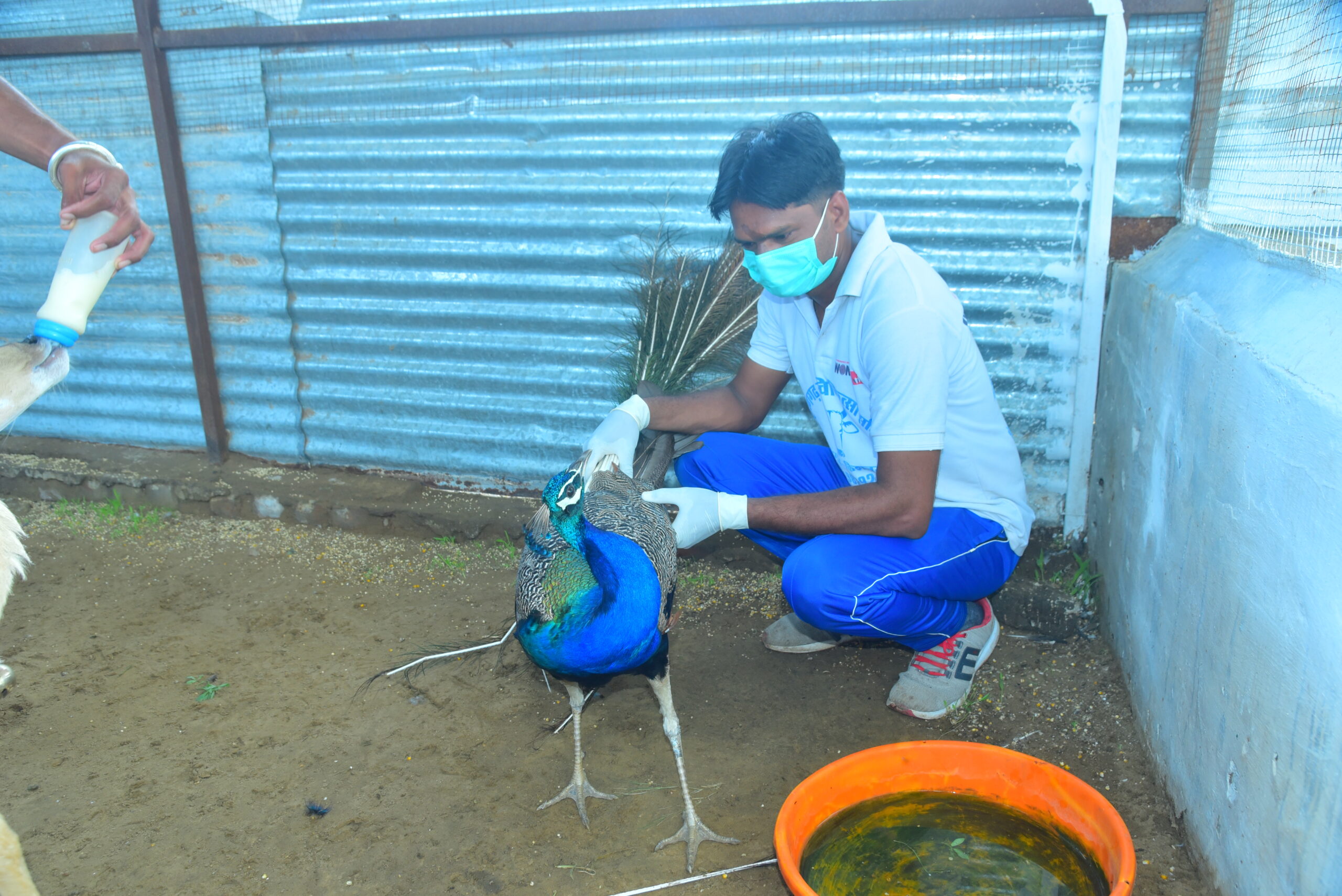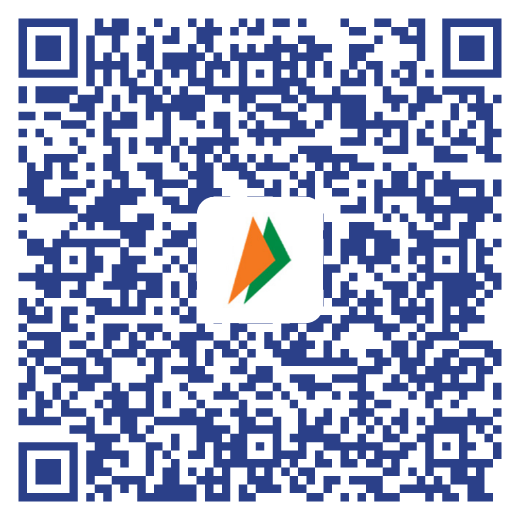About Us
Why Gauchikitsa
The Krishangarh GauChikitsa Samiti (KGCS) (KGCS) was founded in 2015
The hospital-cum-shelter was envisaged as a 24×7 facility that would rescue, home, treat, and rehabilitate animals; serve as a training centre for vets and animal handlers; run an OPD; offer diagnostic services; provide burial facilities; and serve as a holding centre for animals of cruelty cases.
Inaugurated in 2015, the KGCS is home to over 1000 animals at any given point. Spread over four acres of tree covered land in Kishangrah’s madnesh goshala, it assures space in a secure natural environment for animals and birds. KGCS is open 24/7 and runs a round-the-clock free animal ambulance service and helpline. Its busy OPD treats over 100 animals a day providing medical, diagnostic, surgical services.
While the Chairperson, Rasik mohan dargar visits regularly and is actively involved, the day-to-day management is headed by the Hospital Director while veterinary services are supervised by the Medical Director. Each separate department has an administrative head.





Value
“COWS: THE SOUL OF LOVE AND HEART OF GOD
Even a cow creates ambiguous signifiers. The moo of mystery. The Krishnagar Gao Medical Committee, established in January 2015, covers 250 villages in Kishangarh city and nearby areas, aiming to provide timely medical services to accidental cows and save these beating hearts of our society.
Over the last six years, with the helpline number 9829272108 and extensive promotion on social media, more than 50,000 stickers were distributed. This initiative aims to reach a large audience and provide quick assistance when accidents occur. Since its inception, 11,650 sick and injured cows have been treated by the ambulance and brought to the cow hospital.
Our NGO operates 24/7, treating around 200 cows admitted to the hospital, supported by full-time doctors, six compounders, ten assistants, and two ambulance assistants. With the heart of a savior and the blessings of cows, our dedicated team brings happiness back to their lives every day.
As soon as information is received on the helpline, an ambulance, accompanied by a medical assistant, rushes to the informed location. Immediate first aid is administered to avoid further complications and ensure the safety of the cow during transportation. Drip treatments are applied according to the disease, and in cases of fracture, plaster of Paris bandages are used. Physiotherapy is provided systematically to aid the cows’ recovery, ensuring a normal life after bone healing.
For severe cases, like gangrene, surgery is performed to remove the affected part, allowing the cow to walk on three legs. The committee also endeavors to attach artificial feet to two-legged cows. Monthly expenses of about one lakh rupees cover medicines, operations, treatments, and dressings.
Once treated, healthy cows are transported to various Gaushalas for a brighter and secure future. Cows that don’t require treatment are cared for at the informed location, optimizing resources for more critical cases. The committee has successfully completed primary treatment for 1480 cows, including surgeries and proper medication.
The committee uses rental pickups for the ambulance, bringing in 5-6 sick and accidental cows daily from 250 villages of Kishangarh and the adjoining 40 km area. These vehicles also transport healthy cows to different Gaushalas. Special diets, including porridge, cake, crab, vegetables, and juice, are provided to aid recovery.
Cows breeding on the road are brought in, given maternal care, and provided with medicines and a special diet for fertility. Blood donations from healthy cow mothers support weaker ones, ensuring that thorough tests are conducted before donating.
In addition to cows, the committee, with forest department permission, treats and hands over wild animals like peacocks, monkeys, deer, and nilgai. Pigeons, rabbits, cats, dogs, camels, and horses also receive timely medical attention from the dedicated team.
The committee collects 4.50 to 5.00 lakh per month, covering costs incurred through public donations and donor support. As it stands, the committee continues its noble mission, recognizing that cows are not just animals but friends and healers, embodying the spirit of love and the heart of God.”
Ambulance For Cow
We boast a fleet of cutting-edge ambulances equipped to respond swiftly in emergencies. Our services extend beyond traditional boundaries, reaching animals located 200-300 kilometers away. We prioritize immediate care, ensuring on-the-spot attention for animals in critical need. Committed to the well-being of both humans and animals, our high-tech ambulances and dedicated team exemplify our unwavering dedication to providing timely and compassionate assistance in all situations.
Our Help Line :- 80034 70108, 8003392108

Our Vision
KGCS believes that animals are people too. Like us, they too are entitled to the right to life, liberty, and the pursuit of happiness. As the planet’s most vulnerable inhabitants, they deserve our strongest support.
Our Mission
KGCS mission is to provide sick, wounded, and abandoned animals food, shelter, medication, kindness, safety, and care, for as long as they need it.
KGCS Objectives include
- To prevent cruelty and secure the welfare of animals throughout India. In the initial phase, the area of operation to be restricted to the Territory of Ajmer.
- To alleviate animal suffering and instill a feeling of compassion in people so that they may realize their responsibility as humans to protect animals.
- To initiate, promote, and advance legislative and other measures, calculated to encourage kindness, discourage cruelty, and stimulate human sentiment towards the care and treatment of animals.
- To assist in the establishments of pinjra and sanctuaries to give shelter to birds and animals in sickness and old age.
- To synchronize its operations with other voluntary agencies and associations, including local bodies as well as the State and Central governments for the promotion of projects and programmes designed to curtail animal suffering.
- Sensitising owners to the needs of their animals which includes providing proper food, shelter, attention, and opportunity to exercise.
- Controlling the homeless animal population through sterilisation and an active adoption programme that promotes the virtues of Indian dogs as companion animals.
- Discouraging the breeding and buying of dogs.
- Raising awareness about the helpline and ambulance services so that sick and wounded animals may receive timely aid.
- Constant upgradation of veterinary skills and services.
- Improving efficiency to prevent loss, neglect, or ill-treatment of any KGCS housed animal.

